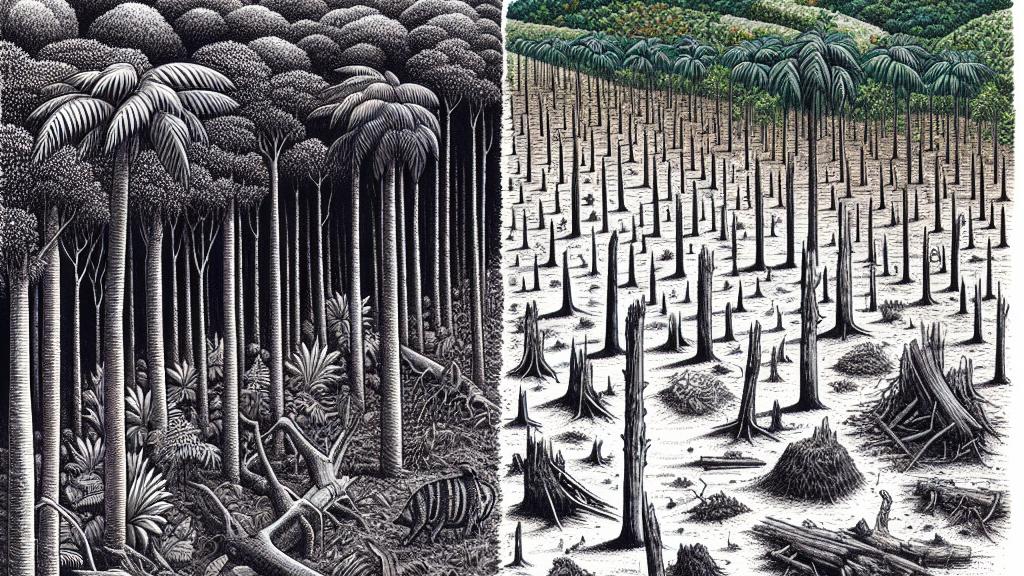The Impact of Agriculture on Biodiversity in Tropical Areas
Overview
- Biodiversity loss in tropical regions is deeply intertwined with agricultural trade practices.
- Recent research reveals that harm from agricultural exports is far worse than previously imagined.
- Addressing these impacts is vital for promoting effective conservation strategies and sustainable practices.

The Crisis of Global Biodiversity Loss
In tropical powerhouses like Brazil, Indonesia, Mexico, and Madagascar, we are witnessing a biodiversity crisis that calls for urgent attention. Astonishingly, studies have found that over 90% of the biodiversity loss in these vibrant ecosystems from 1995 to 2022 is attributed to agricultural exports, especially directed towards countries like China and the United States. Imagine walking through a once-thriving forest now reduced to barren land, where diverse flora and fauna are replaced by endless rows of monoculture crops or grazing pastures for livestock. Each tree that falls and every species that vanishes is not just a loss on paper—it’s a stark reminder of the delicate balance of nature that we are jeopardizing.
Agricultural Trade's Complex Web of Effects
So, why should we care about this tangled relationship between agriculture and biodiversity loss? Agricultural trade behaves like a double-edged sword—it generates economic opportunities, yet it razes habitats that support countless species. For instance, in Brazil, large swells of rainforest are cleared to make way for cattle ranching, leading to a drastic reduction in natural habitats. Across the ocean, Indonesia grapples with rampant palm oil plantation expansion, which disrupts entire ecosystems. Visualize a majestic river winding through a lush jungle, teeming with life. Now picture it transformed into dry land with only hints of its former glory. This painful transformation highlights the urgent need for responsible consumption and sustainable practices that ensure economic growth does not come at the expense of our planet.
A Compelling Call to Reconfigure Our Agricultural Practices
The sobering reality that biodiversity loss in tropical regions can be up to 100 times worse than in the wealthier importing nations is a critical wake-up call. We are standing on the edge of an ecological precipice that demands immediate and concerted action. We must rethink our approach to agriculture—this means actively supporting local and sustainable farming practices, enforcing transparent supply chains, and implementing strict environmental regulations that protect these rich ecosystems. Remember, preserving biodiversity isn’t merely an option; it’s an essential investment in our planet’s health and humanity's future. Together, if we act decisively and strategically, we can safeguard these precious ecosystems and pave the way for a sustainable future, ensuring that generations to come can revel in the beauty of nature’s diversity.

Loading...